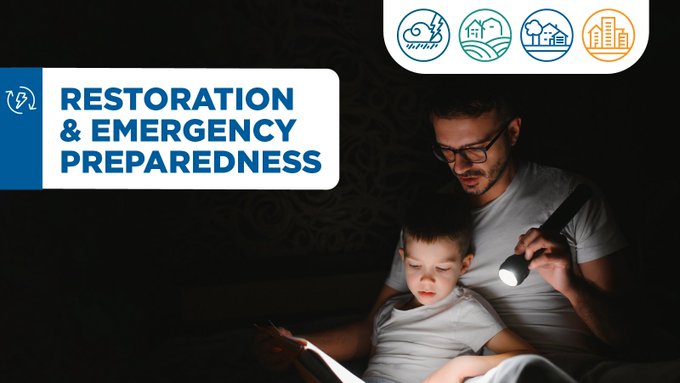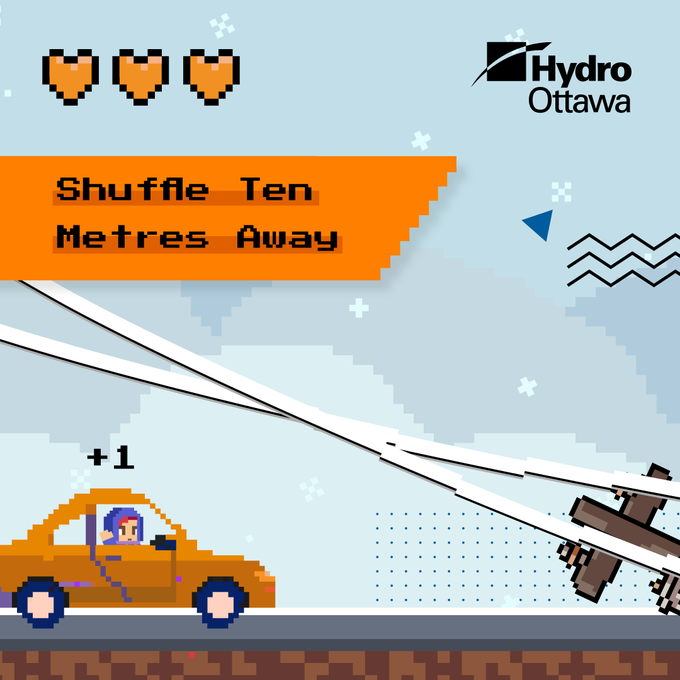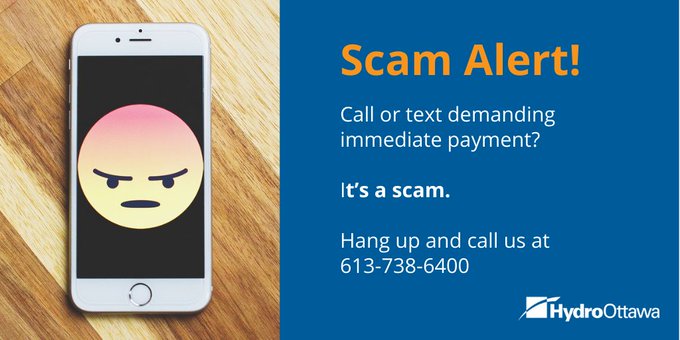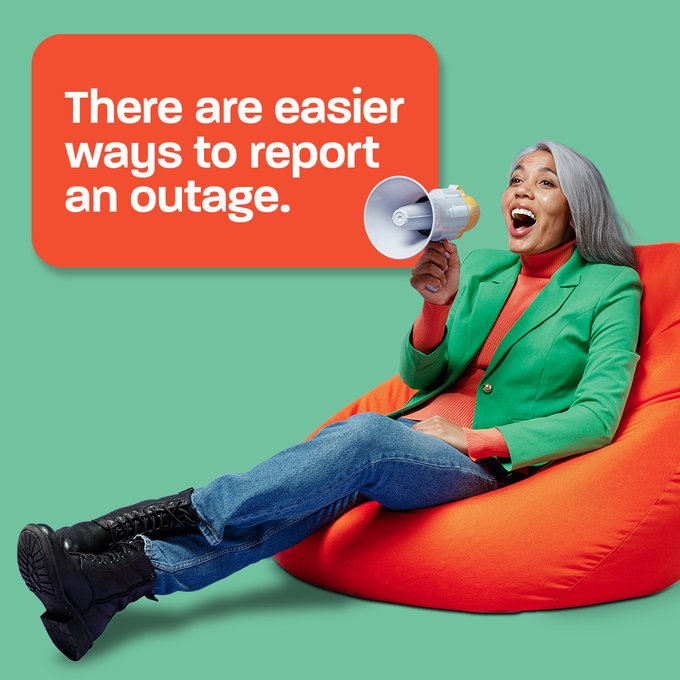Knowing the risks specific to your neighbourhood can help you prepare for emergencies – even when you least expect them. To learn more about how you can stay safe and be prepared for the next storm, visit https://bddy.me/3GmdjpJ
Before a Power Outage
- Prepare a Basic 72 Hour Emergency Kit. Include:
- a flashlight and radio – if they are battery powered, ensure you have enough batteries; alternatively, you could purchase crank devices;
- non-perishable foods that require little to no heat for cooking;
- a first aid kit; and
- enough water to sustain you for up to three days.
- Have at least one land line phone in the home or the capability to charge cell phones during a power outage in order to call emergency services if needed.
- If you require an uninterrupted supply of power, including for specialized medical equipment, ensure that you have a back-up supply in place or a plan to relocate to a facility that can assist you.
- If you are a person with a mobility disability living in a building that requires your use of an elevator, be sure to inform the building management you may need assistance when evacuating.
- Install battery-powered smoke and carbon monoxide detectors, or ensure that hard wired detectors have a back-up power supply. Be sure to check them regularly to ensure they are functioning properly.
- Have wood-burning fireplace chimneys cleaned every fall to eliminate creosote build-up which could cause a chimney fire. This will help ensure that you are building safe fires during power outages.
- Ensure that any generator connected to your home's electrical system is done so through an approved transfer panel and switch that has been installed by a qualified electrician. Generators that are incorrectly connected to the power grid could present a safety hazard to Hydro Ottawa employees and a potential technical risk to the distribution network and neighbouring customers.
- Install a backup power supply for your sump pump. This will help avoid flooding during power outages.
- If you notice that wires connected to your home are damaged, call a qualified electrical contractor for repair.
For more information on how to prepare for an outage, visit the Government of Canada’s Power Outages brochure.
During a Power Outage
- Report power outages and downed power lines using Hydro Ottawa’s 24/7 outage line at 613-738-0188
- Turn off all lights, unplug appliances and electronics, and turn down heating system thermostats. This will help avoid a power surge when electricity is restored.
- If your house has a sump pump that does not have a backup power supply, clear valuables from the basement in case flooding occurs.
- If the doors are kept closed, food in freezers will keep for 24 to 48 hours without power, and food in refrigerators will keep for up to 4 hours. For more information about storing food and water during an emergency, visit the Canadian Food Inspection Agency website.
- If you use a fireplace for heat, check chimneys for creosote build-up or debris. Do not leave the fire unattended.
- Close room doors to keep heat in a confined area.
- Use flashlights. Candles can be a fire hazard. If you must use candles, place them in a non-combustible container away from drapes and carpet and never leave them unattended.
- Only use camp stoves, and charcoal or gas barbeques outdoors.
- Only use generators outdoors. Exhaust fumes could lead to carbon monoxide poisoning if they are not properly vented. To prevent exhaust gases from entering the house, operate generators in well-ventilated conditions away from windows and doors, and be sure to follow the manufacturer’s instructions.
- Plug your appliances directly into the generator using properly rated Canadian Standards Association (CSA) approved cords.
During extended power outages in winter there are extra precautions that should be taken:
- Shut off power to the water heater.
- Shut off water at the main valve (usually found in the basement near the water meter). Use blankets or insulation material to protect the valve, inlet pipe, meter, and pump.
- Open taps to drain the pipes. Leave the taps open.
- Flush toilets to empty them.
- Drain appliances such as dishwashers and washing machines.
- Stay in your home as long as you are safe, warm and can feed yourself. Emergency Reception Centres will be opened by the City of Ottawa should an emergency be declared. You can go there to get information, to stay warm or keep cool, and for comfort and food. Locations will be broadcast on local emergency radio and TV stations should an emergency situation occur.
After a Power Outage
- If wires connected to your home were damaged, call a qualified electrical contractor for repair.
- Do not enter a flooded basement unless you are sure the power is disconnected.
- Do not use flooded appliances, electrical outlets, switch boxes, or fuse-breaker panels until they have been checked and cleaned by a qualified electrician.
- Turn on the main electric switch if it was turned off. Before doing so, ensure that appliances, such as electric heaters, TVs, microwaves and computers, were unplugged. This will help prevent damage from a power surge.
- Give the electrical system a chance to stabilize before reconnecting tools and appliances. Turn the heating-system thermostats up first, and then wait a few minutes before reconnecting the fridge and freezer. Wait 10 to 15 minutes before reconnecting all other tools and appliances.
- Open the main water valve if you closed it, and make sure that the hot water heater is filled before turning on the power to it.
- Check food supplies in refrigerators, freezers and cupboards for signs of spoilage. If you have any doubts that a food item may be spoiled, throw it out.



